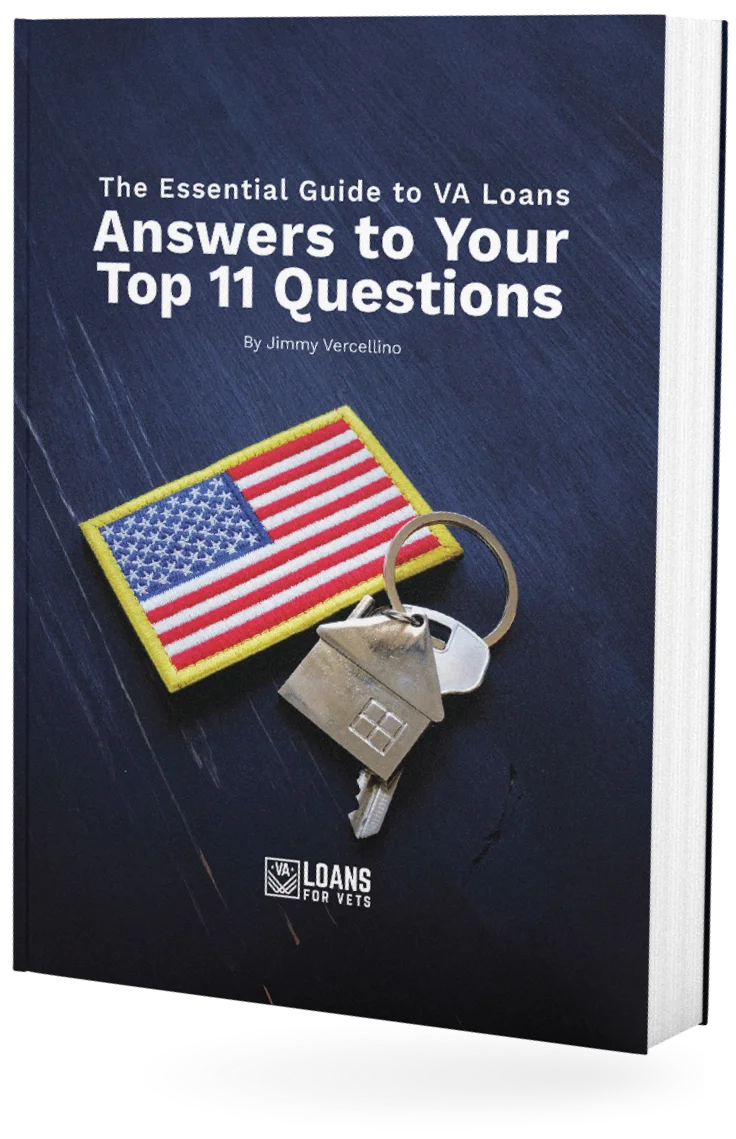Moving around is a fact of life for many service members and their families. The VA attempts to make the process simple but there are some guidelines in place about what type of homes you can use your benefits to purchase.
If you are a veteran, active duty service member, or a surviving spouse you may be wondering if you can use the VA home loan benefits to purchase a vacation home, secondary residence, or even investment properties. In this article, we discuss different types of residences, guidelines for purchasing a second home, and what different entitlements mean.
What is a Primary Residence?
A primary residence is also known as a principal residence. This can be a house, condo, or townhome that you reside in for the majority of the year or a minimum of 6 months. If a primary residence is purchased, the occupants must move into the new home within 60 days. There are some exceptions where the 60-day limit can be extended.
What is a Secondary Residence?
A secondary residence is a home that is not occupied for the majority of the year or less than 6 months. The most common types are vacation homes, investment properties, or simply a second residence when you regularly work in another city. Not all types of second homes are eligible for use with a VA loan.
Can I Purchase a Second Home?
Active duty military personnel tend to move more than the average civilian. Because of this, the VA allows eligible veterans to get a mortgage to purchase a new home even if they have a current VA loan.
One stipulation is that they must plan on moving into the new home within 60 days of closing on the loan. Also, the VA can limit the second home loan amount or may require a down payment if the new home exceeds the remaining entitlement.
If you are using a VA loan to buy a secondary home, typically the primary residence will be sold once you move out of it. However, if you require a second primary residence then you may be able to keep both your primary and secondary homes if you meet the requirements.
There are two requirements if you wish to keep both homes. You must intend to occupy the second home for a minimum of six months out of the year. Also, you would need to have enough entitlement and income to qualify for both homes.
If you will be able to live in both houses for 6 months of the year, then you would be able to buy a second home with your VA loan. Keep in mind that you will need to maintain both mortgage payments. VA mortgages can not be used for investment properties unless one is a multiple-unit home and you reside in one of the units for a minimum of six months of the year.
VA Loan Entitlement
VA loan entitlement is the amount that the VA will pay the lender if you default on the loan. The VA does not lend the money, but it guarantees lenders up to 25% of the loan. This is why lenders are typically more lenient when it comes to credit scores and debt-to-income ratios on a VA loan.
Full Entitlement
If you have full entitlement you do not have a home loan limit and will not have to pay a down payment. It means that the VA guarantees that they will pay up to 25% of the loan amount to your lender if you default on a loan that is over $144,000.
If you have full entitlement, then you must meet one of these requirements:
- You have never used your home loan benefit.
- You’ve paid a previous VA loan in full and sold the property.
- You’ve used the benefit, had a foreclosure and then repaid the VA in full.
Remaining Entitlement
If you have remaining entitlement, then the VA home loan is based on the county loan limit where you live. If you were to default on the loan, the VA will pay up to 25% of what the county loan limit is minus the amount of your entitlement you have already used. You can use the remaining entitlement to take out another VA home loan.
If you have remaining entitlement, then you must meet one of these requirements:
- You have an active VA loan that you are paying back.
- You paid a previous loan in full and still own the home.
- You refinanced your VA loan into a non-VA loan and still own the home.
- You had a compromised claim on a previous loan and did not repay it in full.
- You had a deed in lieu of foreclosure on a previous VA loan (to avoid foreclosure).
- You had a foreclosure on a previous loan and did not repay it in full.
The county loan limit can impact your purchase because, between the entitlement and your down payment, it will need to cover 25% of the loan amount. You can find the remaining entitlement information on the certificate of eligibility (COE). If you have questions about your entitlement, speak with your lender or contact the VA to speak with a home loan representative.
What is a VA Funding Fee?
If you are using a VA home loan to build, improve, or refinance a home then you will need to pay the VA funding fee unless you meet certain requirements. The VA funding fee is a one-time payment that the veteran, service member, or surviving spouse pays on a VA home loan.
This one-time fee helps lower the cost of the loan for US taxpayers since the VA home loan program does not require down payments or monthly mortgage insurance. You won’t have to pay a funding fee if you meet any of these requirements:
- You’re receiving VA compensation for a service-related disability.
- You’re eligible to receive VA compensation for a service-related disability, but you’re receiving retirement or active-duty pay instead.
- You’re receiving Dependency and Indemnity Compensation (DIC) as a surviving spouse.
- You’re a service member who received a note before the loan closing date that states you are eligible for compensation because of a pre-discharge claim.
- You’re a service member on active duty, before the loan closing date, that has received a Purple Heart
You may be eligible for a VA funding fee refund if you are later awarded compensation for a service-related disability and it is dated before the date of your loan closing.
Allow VA Loans for Vets to Assist in the Home Buying Process
If you are interested in purchasing a second primary home and would like a team of skilled professionals to help, contact the VA Loans for Vets team today at (602) 908-5849.



